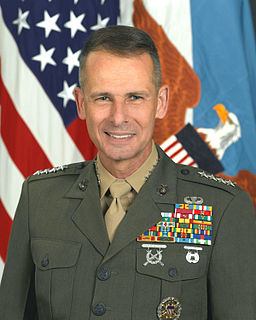A Quote by Viggo Mortensen
In December of 2002, the late Richard Corliss, a respected movie critic with a long and illustrious career, wrote an embarrassing letter of support for the invasion and occupation of Iraq and Afghanistan in the guise of a Time magazine review of Peter Jackson's The Two Towers.
Related Quotes
I wrote a letter to the magazine [Time magazine] pointing out that [Richard] Corliss's comparison of Christopher Lee's Saruman to Osama Bin Laden, and the vastly outnumbered defenders of Helm's Deep united against the Orcs to the "Coalition of the Willing" fighting the good fight against Muslim hordes, displayed the simplistic, xenophobic, and arrogant worldview that makes the government of the United States feared and mistrusted around the world. The editors claimed they had no space to print my brief letter, which I felt was dishonest and cowardly.
The Islamic world is not only suffering from the American occupation of Palestine and Iraq, it's also suffering from the unbelievable corruption in Afghanistan by Afghans themselves and also in Iraq - I'm just giving these 2 examples of countries which are under direct occupation; I do not mean at all to negate the terrible events that led to this or what's going on with the foreign occupation there.
PERFECTION, n. An imaginary state of quality distinguished from the actual by an element known as excellence; an attribute of the critic. The editor of an English magazine having received a letter pointing out the erroneous nature of his views and style, and signed "Perfection," promptly wrote at the foot of the letter: "I don't agree with you," and mailed it to Matthew Arnold.
I wrote a letter to our Australian newspaper about three weeks before the invasion and I said, "Osama bin Laden must be on his knees morning and night praying to Allah that the Americans will invade." And, of course, he was, because nothing more advanced his cause - the cause of terrorism - than the invasion of Iraq. It was an absurdity.
To have or not to have [chemical weapons] is a possibility, but to depend on what media says is nonsense, or to depend on some of the reports of the intelligence is nonsense and that was proven when they invaded Iraq ten years ago and they said "Iraq has stockpiles of WMD" and it was proven after the invasion that this was false ; it was fraud. So, we can't depend on what one magazine wrote.
Johnny Apple, a New York Times correspondent, wrote a front-page story saying Afghanistan could be a quagmire and he was mocked and derided. What is certainly true is that all sorts of resources that would have been used in Afghanistan were diverted to Iraq. Would those resources have helped? Almost undoubtedly. Whether or not Afghanistan would be a peaceful nation-state had we not gone into Iraq I doubt. Afghanistan is going to be Afghanistan, no matter how hard we try to make it something else.



































